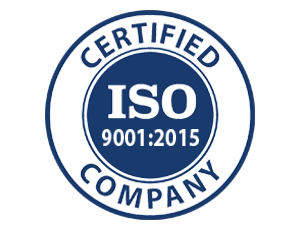Resin Shortage and Supply Chain Disruptions
Global Resin Shortage: Causes, Impacts, and How Hapco Is Responding
The global raw material shortage continues to impact industries worldwide, with the plastics sector facing some of the most significant challenges. Labor shortages, increased demand, and a reinstated import tax on resins have driven up costs, creating supply chain disruptions. Plastic resins, essential for manufacturing everything from packaging to automotive components, have seen dramatic price increases. These rising costs have forced some businesses to downsize, raise prices on finished goods, or halt production entirely. Below, we explore the factors driving these shortages and how Hapco is working to ensure a steady supply of materials.
The Impact of Resin Shortages
The ongoing resin shortage has led to a sharp increase in global prices. Demand continues to exceed available supply, making it difficult for manufacturers to secure materials such as polyethylene, nylon, PVC, and epoxy. Many industries depend on these resins for producing medical devices, electronics, automotive components, pipes, tanks, and pharmaceutical filters.
Manufacturers worldwide are reporting production delays and shutdowns due to material shortages, and costs are expected to rise further. The situation has been worsened by production slowdowns in China and growing demand for epoxy resins in the United States as economic activity rebounds.
While supply and demand for certain consumer-grade resins are stabilizing, highly engineered resins with advanced properties, including flame resistance, biocompatibility, and UV resistance, remain difficult to source.
Key Causes of the Supply Chain Disruptions
Several factors have contributed to the global plastic resin shortage. During the COVID-19 pandemic, the petrochemical industry experienced widespread shutdowns. Since plastic resins are derived from petroleum refining processes, any decline in refining activity creates a ripple effect, making these materials harder and more expensive to obtain.
In addition to pandemic-related disruptions in transportation, shipping, and labor, severe winter storms in 2021 further strained supply chains. Refineries in Louisiana and Texas, which process raw oil into plastic resins, were forced to shut down due to extreme weather, delaying recovery as demand for epoxy resins and other materials surged. Even as production resumes, ongoing weather-related disruptions, labor shortages, and high shipping costs continue to challenge supply chain stability.
How Hapco Is Managing Supply Chain Challenges
Despite these challenges, Hapco, Inc. has taken proactive steps to mitigate supply chain disruptions and maintain a 100% on-time delivery rate for materials and equipment.
For more than 50 years, Hapco has built strong relationships with raw material suppliers, some of which date back to the 1970s. These long-standing partnerships allow us to anticipate potential shortages and secure essential raw ingredients before supply bottlenecks occur. By working with multiple U.S.-based suppliers in different regions, we reduce the risk of disruptions affecting our ability to deliver products on time.
Additionally, most of Hapco’s intermediate resin components are produced at our own manufacturing facility in Hanover, Massachusetts. This level of control helps us avoid many of the challenges faced by larger firms with more decentralized operations.
Future Strategies for Overcoming Supply Challenges
Looking ahead, the plastics and resin industries are exploring new approaches to reduce reliance on traditional raw materials. Innovations in material science and sustainable production methods are expected to play a key role in mitigating future shortages.
One potential solution is the shift toward bio-based epoxy resins. Traditional Bisphenol A-based epoxy thermosets present both environmental and health concerns. New epoxy resins derived from organic sources such as vegetable oil and peanut oil offer a more sustainable and cost-effective alternative.
Sustainability is another critical focus area. Recycling and reusing raw materials, transitioning to cleaner energy sources, and adopting more efficient manufacturing processes will help reduce dependence on finite resources. While achieving full sustainability will take time, these efforts will ultimately contribute to a more stable supply chain and a healthier planet.
Epoxy and Polyurethane Solutions from Hapco, Inc.
Hapco, Inc. is a leading developer and supplier of high-quality polyurethane and epoxy potting compounds, adhesives, release agents, and innovative liquid molding solutions. Our products are engineered to meet the highest industry standards, ensuring reliability and performance in demanding applications.
For more information on our product offerings, explore our catalog or contact us today to discuss your project needs. Request a quote to get started on the ideal solution for your business.





